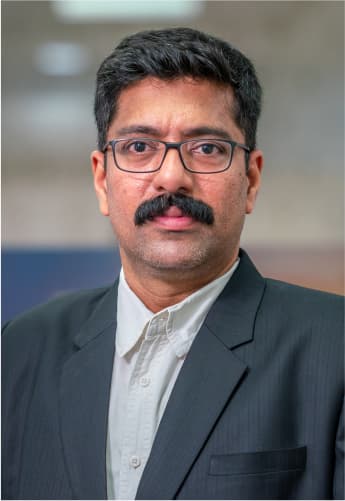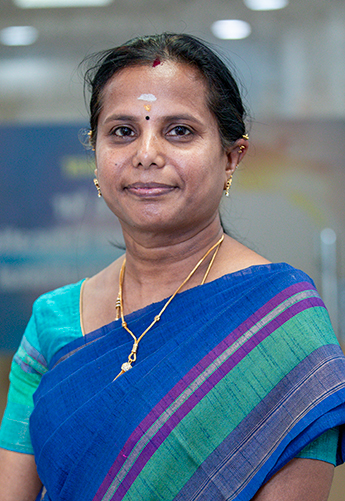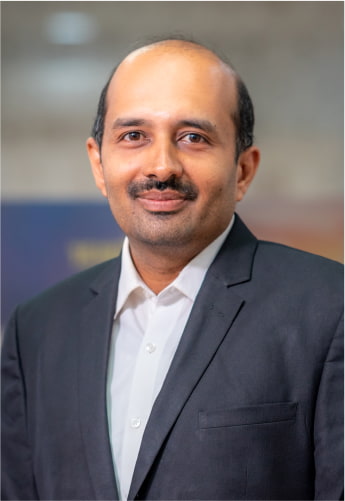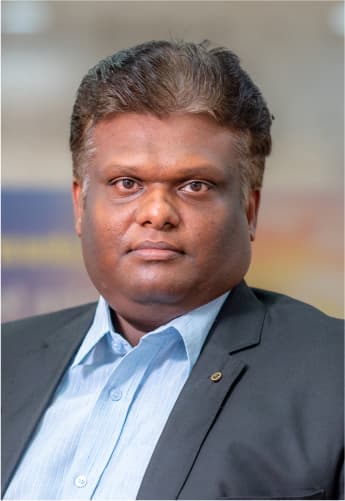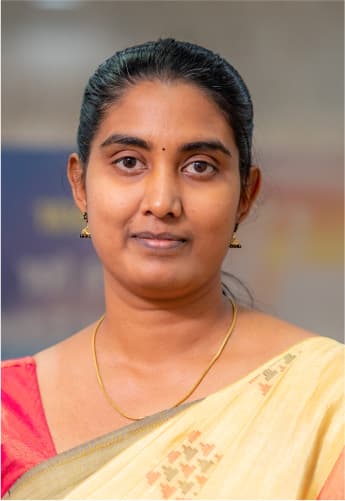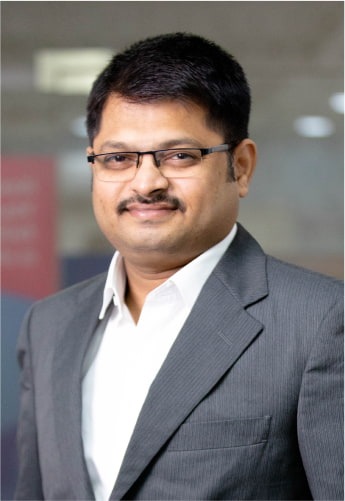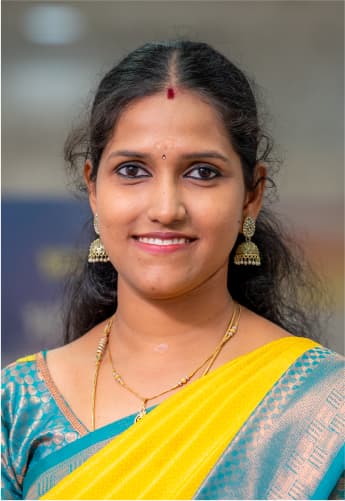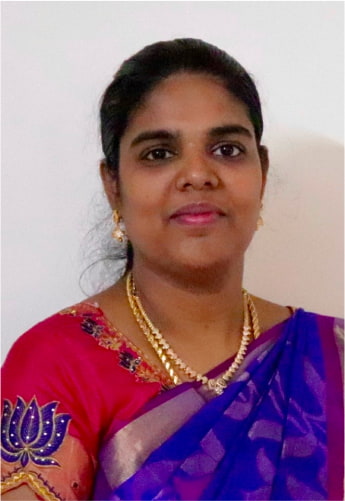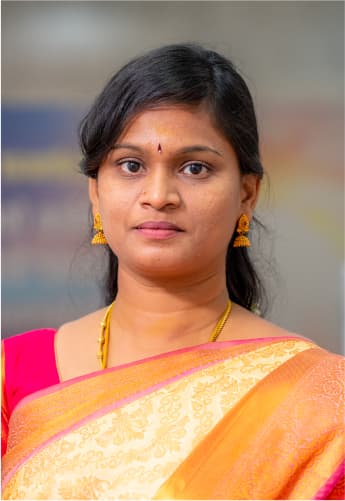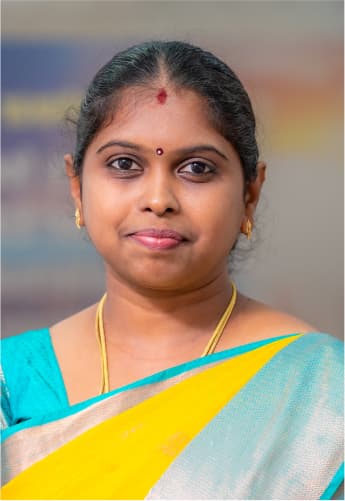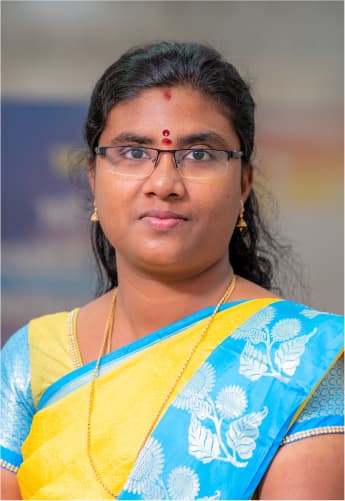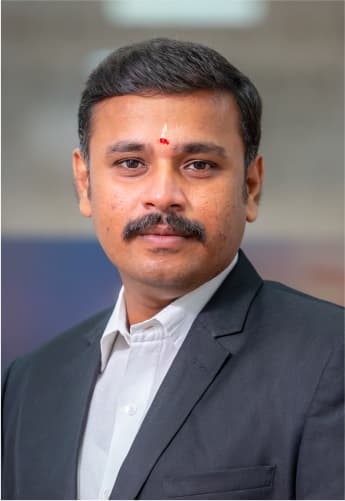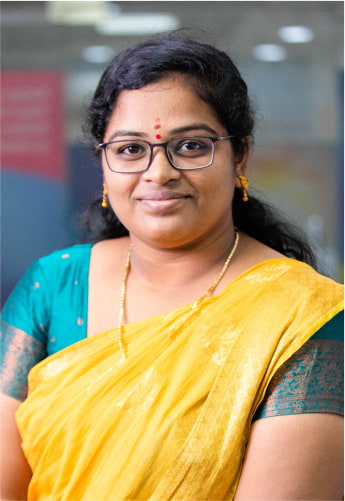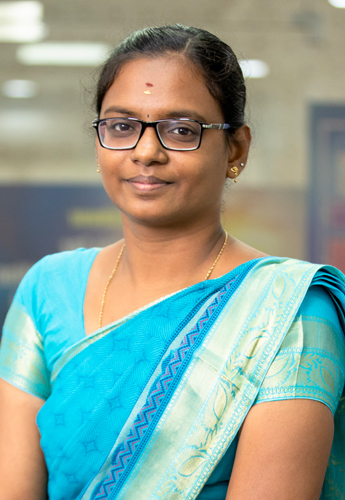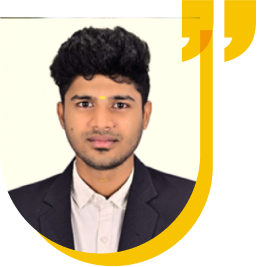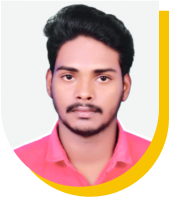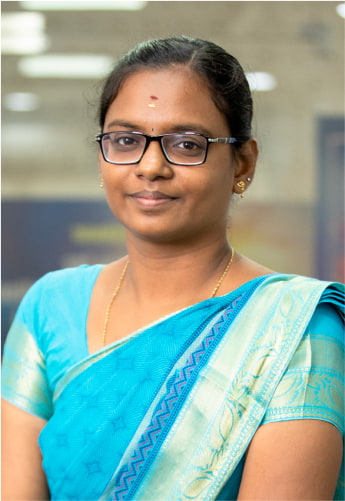COMPUTER & COMMUNICATION ENGINEERING
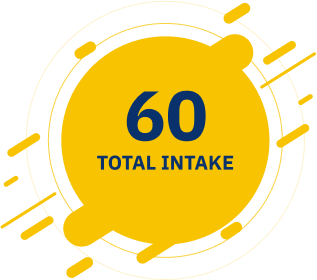
HIGHEST SALARY PACKAGE
RECRUITERS
PUBLICATIONS
PATENTS
PROGRAMME SCOPE
With most of the electronics and communication systems being driven by software today, there is an imminent need for the Electronics & Communication Engineer to be well versed with software too.
The Programme of Computer & Communication Engineering at Sri Eshwar offers the students with an excellent combination of electronics & communication engineering and software.
This dual advantage expands the scope of career progression for the students in electronics, communication and IT companies.
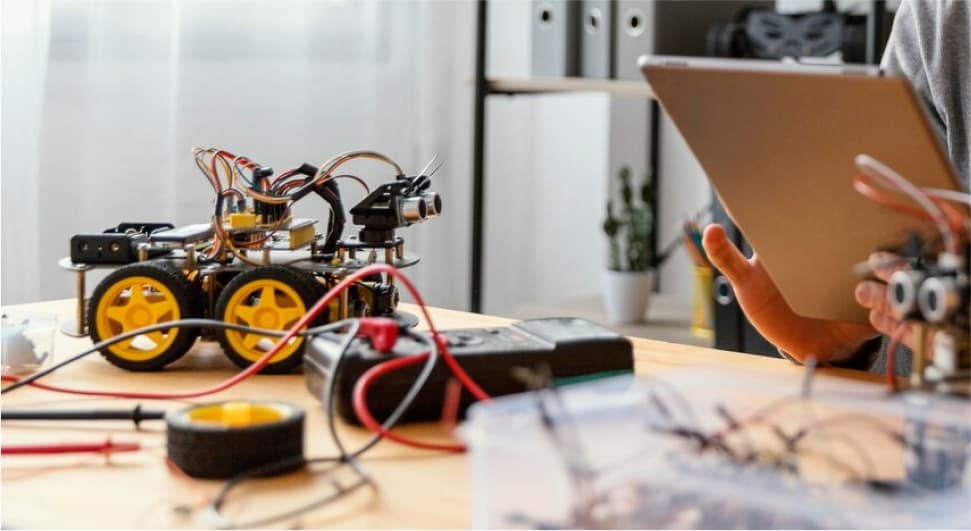

LEARNING SCOPE
The curriculum of CCE imparts the strong fundamental knowledge on electronic courses including Digital systems, Communication Technologies, Embedded Systems, and IoT, and on computer related courses like C, Data Structures, Python & Java programming, Data base management systems, Object Oriented Programming, Networking & Cybersecurity, Web & Mobile application Development.
CAREER PROGRESSION

VISION
MISSION
To offer high-quality engineering education emphasizing practical outcomes.
To foster innovative research and project development among students and instil a sense of social responsibility.
To equip students with industry-relevant skills and robust leadership qualities through pedagogical methodologies and industry engagement.
To inculcate a culture of socially relevant values and nurture moral, ethical, and interpersonal skills among students.
PROGRAMME DETAILS
- PEO1: Acquire core competencies in computational technologies and communication engineering with the ability to utilise the latest software tools to effectively address real time challenges.
- PEO2: Active involvement in research, innovation, or entrepreneurial ventures, resulting in significant societal contributions.
- PEO3: Demonstrate industry-relevant skills, effective leadership qualities, and strong ethical values to exhibit professionalism and foster collaborative work experience.
- PO1: Engineering Knowledge: Apply knowledge of mathematics, natural science, computing, engineering fundamentals and an engineering specialization to develop the solution of complex engineering problems.
- PO2: Problem Analysis: Identify, formulate, review research literature and analyze complex engineering problems reaching substantiated conclusions with consideration for sustainable development.
- PO3: Design/Development of Solutions: Design creative solutions for complex engineering problems and design/develop systems/components/processes to meet identified needs with consideration for public health and safety, whole-life cost, net zero carbon, culture, society, and environment as required.
- PO4: Conduct Investigations of Complex Problems: Conduct investigations of complex engineering problems using research-based knowledge including design of experiments, modelling, analysis & interpretation of data to provide valid conclusions.
- PO5: Engineering Tool Usage: Create, select and apply appropriate techniques, resources and modern engineering & IT tools, including prediction and modelling recognizing their limitations to solve complex engineering problems.
- PO6: The Engineer and The World: Analyze and evaluate societal and environmental aspects while solving complex engineering problems for its impact on sustainability with reference to economy, health, safety, legal framework, culture, and environment.
- PO7: Ethics: Apply ethical principles and commit to professional ethics, human values, diversity and inclusion; adhere to national & international laws.
- PO8: Individual and Collaborative Teamwork: Function effectively as an individual, and as a member or leader in diverse/multi-disciplinary teams.
- PO9: Communication: Communicate effectively and inclusively within the engineering community and society at large, such as being able to comprehend and write effective reports and design documentation, make effective presentations considering cultural, language, and learning differences.
- PO10: Project Management and Finance: Apply knowledge and understanding of engineering management principles and economic decision-making and apply these to one’s own work, as a member and leader in a team, and to manage projects and in multidisciplinary environments.
- PO11: Life-Long Learning: Recognize the need for, and have the preparation and ability for i) independent and life-long learning ii) adaptability to new and emerging technologies and iii) critical thinking in the broadest context of technological change.
- PSO1: Apply the concepts of computer and communication systems to develop software for different applications.
- PSO2: Acquire skills and knowledge to solve real time challenges in communication networks.
Corporate ADVISORY BOARD
Dr.Shriram K Vasudevan

Dr.T.Anbalagan

Mr.R.Vigneshwaran

ENHANCED LEARNING
LABS
- Programming Language Laboratory (C, C++, Python, Java)
- Database Management Systems Laboratory
- Design and Analysis of Algorithms Laboratory
- Digital Principles and Computer Organization Laboratory
- Full Stack Development Laboratory
- Digital Signal Processing Laboratory
- Artificial Intelligence and Machine Learning Laboratory
- Cyber Security Laboratory
- Wireless Communication Lab
COES
VALUE ADDED COURSES
- Mastering Digital Defense
- Applied Machine Learning with Python
- Exploring Data Dynamics
- Advanced Embedded Systems and IoT Applications
- Mastering Web Technologies
- Mastering Blockchain Technology
- Future networks: 5G and Beyond
INNOVATIVE TEACHING
- Scratch Based Gamified Programming
- Flipped Classroom using GCR/MOODLE
- Quiz using Mentimeter
- Programming using coding platforms
- Reflective Learning
- Collaborative Learning through Co-Lab
- Gamified Learning Using Blockly
Head of the department
FACULTY MEMBERS
STUDENT ACHIEVEMENTS
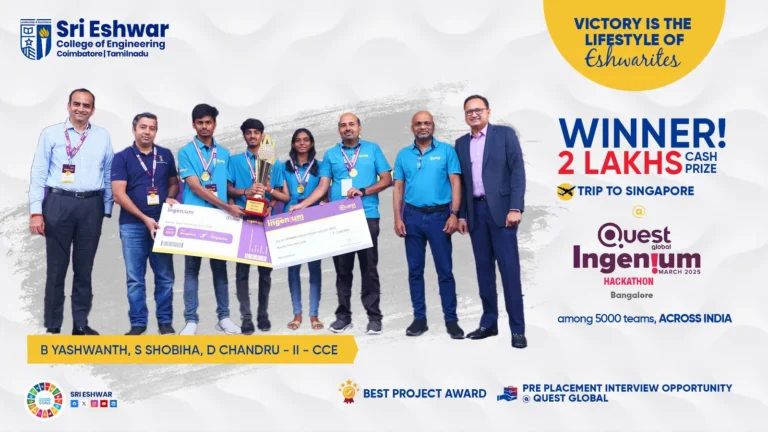
Quest Ingenium Hackathon
2nd Year CCE Students
Winner (2 Lakhs Cash Prize)
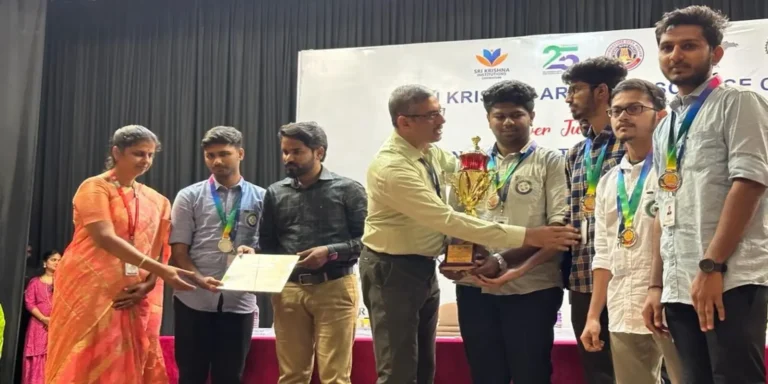
Cyber Hackathon
II & III Year CCE Students
Won Frist Prize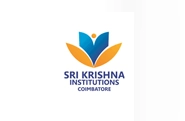
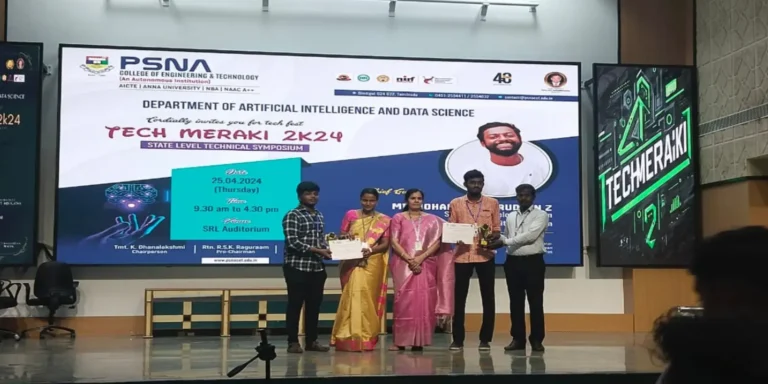
TECH MERAKI-2K24
G. Abinaya and S. M. Karishma
Won 2nd prize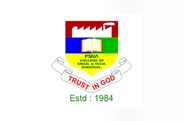
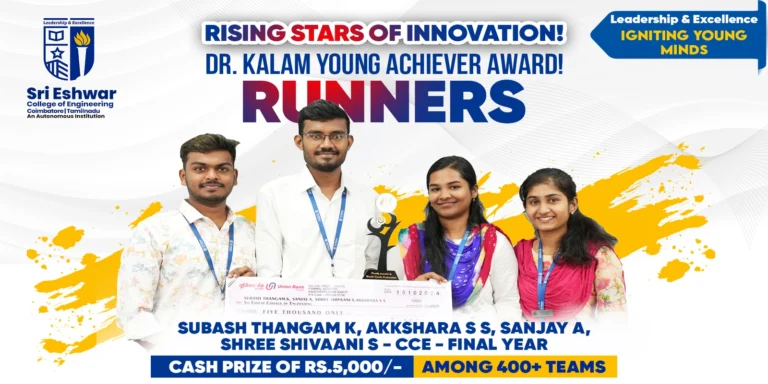
Dr.Kalam Young Achiever Award
CCE Final Year Students
Runner-up with Cash Prize 5000.
RESEARCH
Research work is a big part of every department at Sri Eshwar. Here’s the roundup of the research work – publications, patents, grants, seed funds, consultancy projects and the scholars/supervisors for the department
AU APPROVED
RESEARCH
supervisors
research
facilities
Publications
patents
research
grants &
seed funds
consultancy projects
INDUSTRY COLLABORATION
Each department has connections with relevant industry professionals, tie-ups through MOUs with companies in order to facilitate Internships, Industry visits, Projects, Knowledge Sharing Expert Sessions by industry experts. This greatly helps us bring in the industry-perspective into the courses being taught and a hands-on learning for the students
mous
industry
visits
internships
coe
activities
projects
RECRUITERS






























ALUMNI TESTIMONIALS
The Department of Computer and Communication Engineering has equipped me with both theoretical knowledge and practical skills, preparing me for real-world challenges in the tech industry. The supportive faculty and hands-on projects fostered an environment where I could thrive and innovate. Proud to be a graduate of such a dynamic and forward-thinking department.
R.Hari Nikesh
2022-23 Batch, Quinbay Technologies
Entering the tech industry was a dream, and thanks to the CCE department, it's now a reality in a top-tier company. The cutting-edge courses and hands-on experiences shaped me into a versatile professional, ready to tackle any challenge. Gratitude to the department for sculpting not just my skills, but my career path with finesse.
M.Parthipan
2024, Lending Kart
CCE OFFICE
Dr.C.Vivek
Professor & Head, CCE
+914259200400
Email: hodcce@sece.ac.in
Ms.S.Sangeetha
Dept. Office Secretary, CCE
+914259200399
Email: cce_support@sece.ac.in






